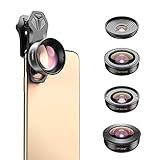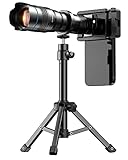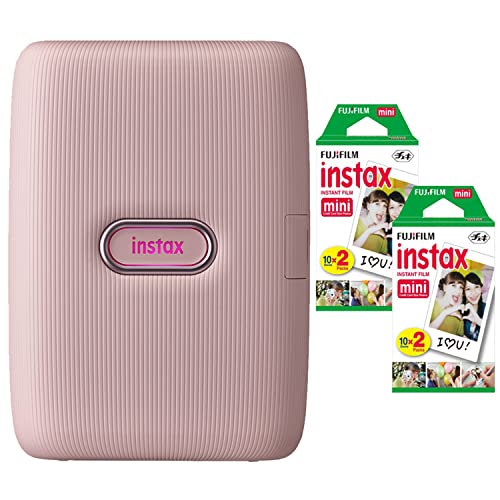
When it comes to taking photos with our beloved iPhones, we all strive for the best results. The iPhone camera is known for its exceptional quality and the ability to capture stunning images. However, one question that often comes to mind is whether the sun can ruin the iPhone camera lens.
The camera lens is a crucial component of any smartphone, including the iPhone. It allows light to pass through and helps focus the image onto the sensor, enabling us to capture those perfect shots. But how does the sun affect this delicate piece of technology?
Exposure to direct sunlight can indeed have some negative consequences for the iPhone camera lens. The intense sunlight can lead to overheating of the lens, which may result in blurred images, color distortion, or even damage to the lens itself. Additionally, prolonged exposure to the sun can cause the lens to expand, affecting the overall image quality.
That being said, it’s important to note that modern iPhones are equipped with advanced technology and built-in safeguards to protect the camera lens. The lens is usually made of high-quality materials that can withstand a certain degree of heat and sunlight. However, it’s always a good idea to take precautions when using your iPhone camera in bright sunlight to avoid any potential damage.
Sun Exposure and iPhone Camera Lens
Sun exposure can have negative effects on the lens of an iPhone camera. The lens of the iPhone camera is made of delicate materials that can be affected by prolonged exposure to intense sunlight. This can result in various issues that may affect the quality of your photos.
1. Lens Flare: Sunlight can cause lens flare, which is a phenomenon where light scatters inside the lens and creates unwanted artifacts in the image. These artifacts can appear as bright spots or streaks and can reduce the overall clarity of the photo.
2. Fading Colors: Prolonged sun exposure can cause the colors of your photos to fade over time. This is because the intense UV rays in sunlight can damage the lens coatings and affect the color reproduction capabilities of the lens.
3. Lens Haze: Sun exposure can also result in the formation of a haze on the camera lens. This haze can reduce the clarity and sharpness of your photos, making them appear hazy or blurry.
4. Lens Scratches: Additionally, direct exposure to sunlight can make the lens more susceptible to scratches. Dust particles or sand carried by the wind can scratch the lens surface, leading to permanent damage and affecting the image quality.
To protect your iPhone camera lens from sun exposure, it is recommended to use a lens cap or protective case when not in use. Avoid leaving your iPhone exposed to direct sunlight for extended periods of time, especially in hot and sunny environments. Regularly cleaning the lens with a microfiber cloth can also help in maintaining its clarity and preventing issues caused by dirt or dust.
Effects of Sun on iPhone Lens
Exposure to direct sunlight can have damaging effects on your iPhone camera lens. Here are some potential issues that can occur:
- Sunspots: Prolonged exposure to the sun can cause sunspots to appear on the lens surface. These spots can reduce the clarity of your photos and videos, resulting in hazy or distorted images.
- Lens Flare: When the sun’s rays directly hit the lens, it can create lens flare. This is characterized by hazy, washed-out areas in the image and can significantly impact image quality.
- Overheating: Direct sunlight can cause your iPhone to heat up quickly, including the camera lens. Overheating can potentially damage the lens or other components within the phone, leading to malfunctioning or reduced performance.
- Fading Colors: Sunlight can also cause colors to fade over time. The UV rays in sunlight can gradually affect the lens coatings and cause colors to appear less vibrant, impacting the overall image quality.
To protect your iPhone lens from the sun’s damaging effects, it’s recommended to keep your phone out of direct sunlight whenever possible. When taking photos outside, try to position yourself and the subject in a way that avoids direct sunlight hitting the lens. Additionally, a lens hood or a lens filter can help reduce lens flare and protect the lens from harmful UV rays.
Regularly cleaning the lens with a microfiber cloth or a lens cleaning solution can also help maintain its clarity and prevent sunspots from developing over time. By taking these preventative measures, you can ensure that your iPhone camera lens stays in optimal condition for capturing clear and vibrant photos.
Protecting Your iPhone from Sun Damage
Sun damage to your iPhone’s camera lens can cause issues with your photos and videos. Here are some tips to protect your device:
1. Avoid direct sunlight: Try to keep your iPhone out of direct sunlight as much as possible. Prolonged exposure to sunlight can cause the camera lens to become discolored or even cracked.
2. Use a protective case: Invest in a high-quality iPhone case that covers the camera lens. Look for a case with a raised lip around the camera cutout to provide extra protection against scratches and sun damage.
3. Clean the lens regularly: Dust, dirt, and smudges on the lens can obstruct the quality of your photos. Use a microfiber cloth or lens cleaning solution designed for camera lenses to gently clean the lens regularly.
4. Store your iPhone properly: When you’re not using your iPhone, store it in a cool and dry place, away from direct sunlight. Avoid leaving it in hot cars or in areas with high humidity.
5. Be cautious with accessories: Some accessories, such as clip-on lenses or filters, may introduce additional risks of sun damage. Ensure that any accessories you use are compatible with your iPhone and do not interfere with the camera lens.
6. Check for signs of damage: Regularly inspect your iPhone’s camera lens for any signs of damage, such as scratches or discoloration. If you notice any issues, consider taking your device to an authorized service center for further assistance.
By following these tips, you can help protect your iPhone’s camera lens from sun damage and ensure that you capture high-quality photos and videos.
Using Lens Filters for Sun Protection
When it comes to protecting the camera lens on your iPhone from the damaging effects of the sun, one effective solution is to use lens filters. These accessories can not only enhance your photography, but also shield your lens from harmful UV rays and excessive brightness.
Types of Lens Filters
There are various types of lens filters available that can provide sun protection for your iPhone camera lens. One popular option is the UV filter, which blocks ultraviolet rays that can cause haze and reduce image clarity. Additionally, polarizing filters are designed to reduce glare and enhance color saturation, providing increased visual impact.
UV Filters: These filters are transparent and do not affect the color of the image. They absorb UV rays, preventing them from reaching the lens and causing damage. UV filters can be left on your lens at all times to provide continuous protection.
Polarizing Filters: These filters not only protect your lens from the sun but also offer the added benefit of reducing reflections and improving contrast in your photos. They work by blocking certain light waves, allowing for clearer, more vibrant images.
Benefits of Using Lens Filters
By using lens filters for sun protection, you can enjoy several benefits:
- Protection: Lens filters act as a shield, protecting your camera lens from scratches, dirt, and dust. They also safeguard against the harmful effects of the sun, preventing potential damage to the lens.
- Enhanced Image Quality: The use of lens filters can significantly improve the quality of your photos. UV filters, for example, reduce haze and maintain sharpness, while polarizing filters enhance color saturation and reduce reflections, resulting in more visually appealing images.
- Convenience: Lens filters are easy to use and can be attached or removed quickly. They are lightweight and compact, making them portable and convenient for everyday use.
Remember to choose high-quality lens filters specifically designed for your iPhone model to ensure optimal performance and protection.
Prevention and Care for iPhone Camera Lens
Protecting your iPhone’s camera lens is crucial for maintaining the quality of your photos and videos. Here are some tips to help prevent any damage to the lens and keep it in good condition.
1. Use a Lens Protector
Consider using a lens protector to shield your iPhone camera lens from scratches, dust, and other potential hazards. These protectors are typically made from tempered glass or high-quality plastic and are easy to install. They provide an extra layer of protection to keep your lens safe.
2. Avoid Direct Sunlight
Excessive exposure to sunlight can damage the camera lens and affect the overall performance. Avoid leaving your iPhone under direct sunlight for extended periods. If you’re out in the sun, try to keep your phone in a shaded area or use a protective case that minimizes sun exposure.
Additionally, be cautious when taking photos or recording videos in extremely bright conditions. The intense sunlight can cause flare or lens flare, affecting the clarity of your shots. Adjust the angle or position of your device to reduce the impact of direct sunlight.
3. Keep Your Lens Clean
Dust, fingerprints, and smudges can compromise the quality of your photos. Regularly wipe your iPhone camera lens with a soft, lint-free cloth to remove any debris or marks. Avoid using harsh chemicals or abrasive materials as they can damage the lens coating. If necessary, use a microfiber cloth dampened with distilled water for stubborn stains.
4. Handle with Care
Always handle your iPhone with care, especially when it comes to the camera lens area. Avoid placing it face down on harsh surfaces or in pockets with other items that could scratch the lens. Consider using a protective case that covers the lens area and provides shock absorption in case of accidental drops or impacts.
By following these preventative measures and taking proper care of your iPhone camera lens, you can ensure that it remains in excellent condition, allowing you to capture stunning photos and videos for years to come.
Tips for Preventing Sun Damage to Your iPhone Lens
Sun damage can negatively affect the lens of your iPhone camera, leading to blurry or discolored photos. To protect your lens from the harmful effects of the sun, consider the following tips:
1. Keep your iPhone in the shade: Whenever possible, avoid direct exposure to sunlight. Keep your iPhone in a shaded area or place it in a bag or pocket when you’re not using it. This will minimize the risk of sun damage to the lens.
2. Use a protective phone case: Invest in a high-quality phone case that covers the lens area. Look for a case that provides adequate protection against sunlight and other potential sources of damage. A case with a built-in lens cover is even better.
3. Avoid extreme temperatures: High temperatures can also contribute to lens damage. Avoid leaving your iPhone in a hot car or exposing it to excessive heat for extended periods. When using your iPhone in hot weather, try to keep it cool by placing it in the shade or using a cooling pad.
4. Clean your lens regularly: Dust, fingerprints, and other debris can accumulate on the lens surface, affecting image quality. Use a microfiber cloth or lens cleaning solution to gently clean the lens regularly. Avoid using abrasive materials that could scratch the lens.
5. Be mindful of reflective surfaces: Reflections from reflective surfaces like water, glass, or mirrors can amplify the sun’s rays and increase the risk of lens damage. When taking photos, try to adjust your angle to minimize or avoid unwanted reflections.
6. Use a lens hood: Consider using a lens hood attachment for your iPhone camera. A lens hood can help block out excessive sunlight and protect the lens from direct exposure. It can also improve image quality by reducing lens flare and glare.
By following these tips, you can minimize the risk of sun damage to your iPhone lens and ensure that your photos turn out clear and vibrant.
Cleaning and Maintaining Your iPhone Camera Lens
Your iPhone camera lens plays a crucial role in capturing high-quality photos and videos. To ensure that it continues to perform at its best, it’s important to clean and maintain it regularly. Here are some tips to help you keep your iPhone camera lens in great condition:
1. Use a Lens Cleaning Cloth
When cleaning your iPhone camera lens, it’s important to use a soft, lint-free cloth specifically designed for cleaning lenses. Avoid using rough materials, such as paper towels or your shirt, as they can scratch the lens.
2. Remove Dust and Smudges
Gently wipe the camera lens in a circular motion to remove any dust or smudges. If there are stubborn fingerprints or oil marks, you can dampen the cloth with a small amount of lens cleaning solution, or use a microfiber cloth specifically designed for electronics.
| Do’s | Don’ts |
|---|---|
| Do clean your iPhone camera lens regularly to maintain its clarity. | Don’t use abrasive materials or harsh chemicals on the lens. |
| Do handle your iPhone with clean hands to prevent smudges on the lens. | Don’t touch the lens with your fingers directly. |
| Do store your iPhone in a safe place to prevent scratches on the lens. | Don’t expose your iPhone camera lens to extreme temperatures. |
By following these simple tips, you can keep your iPhone camera lens clean and free from damage. Remember, a well-maintained lens ensures better image quality and helps you capture those special moments with clarity and precision.
FAQ
Will exposure to sunlight damage the camera lens on my iPhone?
No, exposure to sunlight will not damage the camera lens on your iPhone. The lenses on iPhones are designed to withstand normal usage and are made from durable materials that are resistant to sunlight. However, it is still recommended to avoid exposing your iPhone to extreme temperatures or direct sunlight for long periods of time, as this can affect the overall performance of your device.
Can the camera lens on an iPhone get scratched by direct sunlight?
No, the camera lens on an iPhone cannot get scratched by direct sunlight. The lens on an iPhone is typically made from scratch-resistant materials, such as Corning Gorilla Glass, which can withstand everyday usage and minor abrasions. However, it is always a good idea to handle your iPhone with care and avoid exposing it to rough surfaces or sharp objects that could potentially scratch the lens.
Will the quality of my iPhone photos be affected if I take pictures in direct sunlight?
No, taking pictures in direct sunlight will not affect the quality of your iPhone photos. In fact, natural sunlight can often enhance the look of your photos by providing a good source of lighting. However, it is important to keep in mind that extreme lighting conditions, such as direct sunlight or harsh shadows, can impact the exposure and contrast of your photos. In such cases, it may be helpful to adjust the exposure settings or use HDR mode to capture more balanced and detailed photos.
Should I use a lens protector on my iPhone camera to protect it from sunlight?
Using a lens protector on your iPhone camera can help protect it from sunlight, as well as scratches and dust. There are various lens protector options available in the market, ranging from tempered glass protectors to adhesive films. These protectors are designed to fit securely over the camera lens and provide an additional layer of protection without compromising the quality of your photos. However, if you choose not to use a lens protector, it is still important to handle your iPhone with care and avoid exposing it to extreme temperatures or direct sunlight for long periods of time.


















